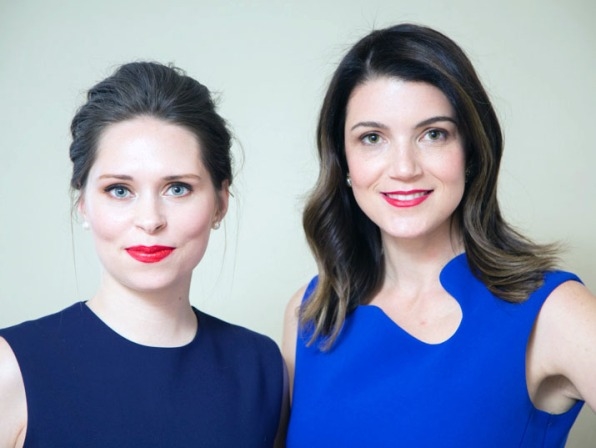This Startup Wants To Kill The “Mommy Track” Once And For All
Browsing the job board at Werk, a startup that promotes flexible work, can feel like visiting a utopian future. Looking for a job with minimal travel, because you have young kids at home? No problem, there are dozens listed here. Or perhaps you’d like to work from a remote location, at least one day per week? Companies including Deloitte and HBO would be happy to make that possible. In one fell swoop, the awkward questions that might derail a conversation with a prospective boss have been transformed into an opportunity to better balance career and family.
“It’s time for us to demand a work environment that is not designed for our failure but for our success,” says Anna Auerbach, who cofounded and co-leads the company alongside Annie Dean. The two women, both mothers, were in fast-track careers when a mutual friend introduced them. Now they are on a mission to turn the vague concept of “flexibility” into a clear set of expectations that employers can set in the hopes of recruiting and retaining top talent.

Werk is still small—to date, the company has signed on 150 hiring partners and processed 4,000 job applications. But it is poised for growth, thanks to $2.85 million in seed funding, announced this week. Rethink Impact, a $112 million female-run venture fund, led the round, with female-focused investors Halogen Ventures and SoGal Ventures also participating.
“It’s time to revisit what a ‘good day’s work’ looks like,” says Rethink Impact partner Heidi Patel. “Werk is an important response to the demands of modern society and one that will give people more control.”
Werk’s core product is a job board, which has been active since February. Companies pay to post open positions, and job-seekers pay an annual fee of $48 to gain access to the marketplace. Each job must be flexible in one or more ways—fluid working hours, for example, or the ability to leave the office on short notice. It must also be eligible for promotion, in order to ensure that women are taking on roles that have advancement potential.
“We strongly believe that there is no reason that this track should be treated any differently and that people should be empowered to use their executive function to identify and be disciplined about what works for them,” Dean says.
A former real estate attorney, Dean knows all too well that flexibility can be in short supply in competitive fields like finance and law. Soon after her second child was born, she hit a breaking point. “There was this moment when I was sitting at my desk in my law firm and I realized that there was no path forward for me,” she says. “I couldn’t work my way out of this hole because the way I was being asked to work was fundamentally incompatible with what my life required of me. I said to myself, ‘If I can’t handle this, what are all the other women doing?’”
In many cases, they are dropping out of the workforce entirely. The numbers vary by education level, but among women with bachelor’s degrees, 30% leave their careers around the time their first child is born—a statistic that has been consistent for the last three decades. Moreover, attrition continues as women rise up through the ranks; among Fortune 500 companies, there are just 32 female CEOs.
For women and the families they help support, lack of flexibility can have a devastating effect on happiness and household income. And for companies, lack of flexibility is ultimately just as damaging—to the bottom line. Research published last year suggests that a company’s ability to retain and promote women leaders is positively correlated with its profitability.
“Women in leadership is the right thing to do, and it increases shareholder value,” says Auerbach, a former McKinsey & Company consultant. With Werk’s new funding, she and Dean plan to build out a training solution for human resources departments, focused on flexibility, that would launch this fall. “Our long-term vision is that flexibility exists in some form across every job search.”
Auerbach and Dean, as co-CEOs, model that vision. They divide some responsibilities, but share all major decisions. And when one has to visit the doctor with a sick child or pick up goodie bags for a birthday celebration, the other is ready to step in.
“There is no way that we could do this role as effectively as we do and lead the company in the way that we do without each other’s complete support,” Dean says.
Together, Auerbach says, “We’re like one, hella-super-charged CEO.”
(29)













